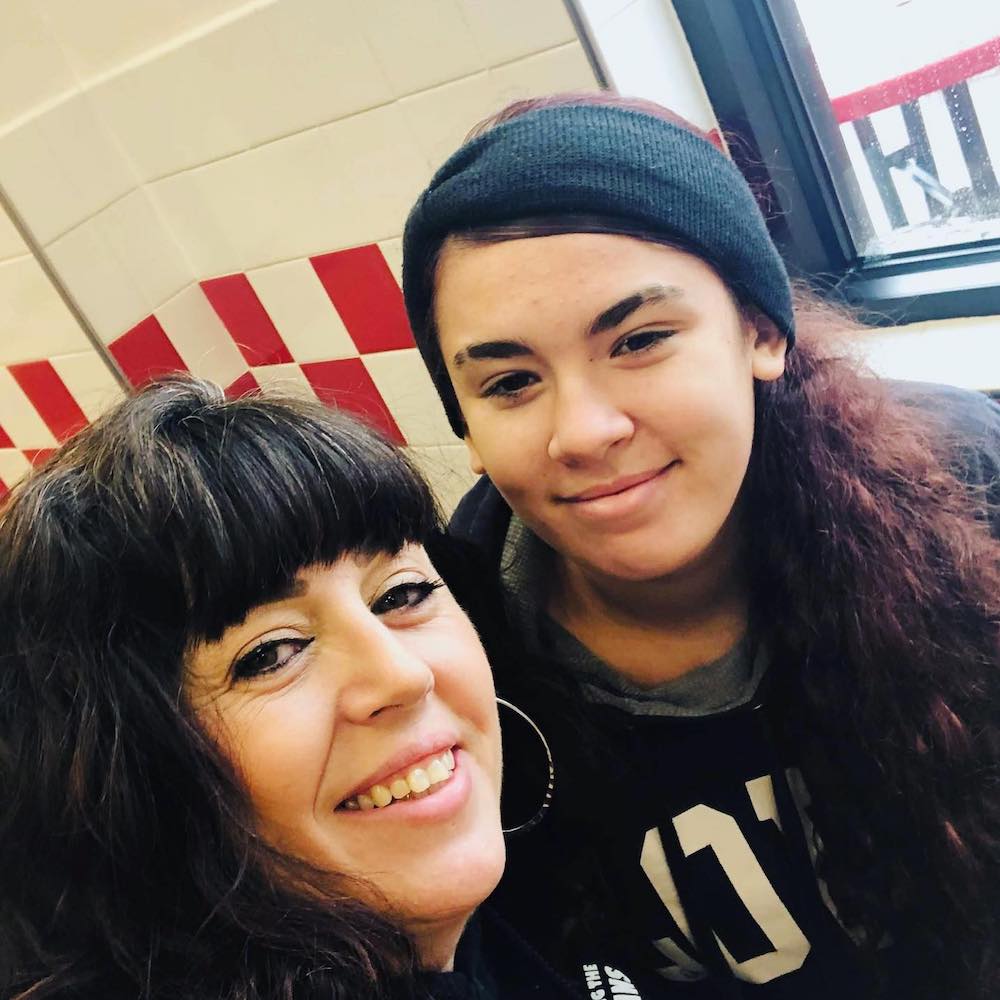
Debra Rush (left) and her daughter Kendra McIntyre (right) both suffered the long-lasting emotional effects of human trafficking. Photo contributed
Written by Ben Hensley
“For me, one of the false beliefs that was present was that once I had exited out of that life and me and my children had cleared that hurdle…everything seemed okay.”
That was what the Founder and CEO of Breaking the Chains (BTC), Debra Rush felt once she began work at her nonprofit.
After a life that began deeply intertwined in the criminal industry of human trafficking, Rush founded BTC in 2014 in an effort to provide a service for survivors of human trafficking, aiming to prevent trafficking and rehabilitate victims.
Earlier this month Rush returned to BTC after the murder of her daughter, Kendra, 20, who was shot and killed this spring in a Los Angeles neighborhood known for its history of human trafficking. Despite the tragedy, Rush, who herself was a victim, is continuing to push forward to eradicate the criminal enterprise that has taken so much from both her and countless other victims whose voices go unheard.
Back with BTC
Rush’s return to BTC was met with an outpouring of support. Her door was full of notes and kind words from survivors the nonprofit has helped over the years.
“I just didn’t expect that,” Rush said, noting that many of the survivors frequently stop by to visit.
Rush said during her time away, BTC did not miss a beat, continuing its work to provide assistance and support for victims.
“I think one of the key revelations in all of this was how fluidly and flawlessly they all really just jumped in and did what they needed to do to continue to move our mission forward,” she said.
But the return to BTC was not all that Rush aims to do following the tragedy; with the launching of a new nonprofit organization named after her late daughter — Kendra’s Cause — Rush hopes to fight the issue of human trafficking not just from a reactionary standpoint, but from a proactive one.
Rush, whose two surviving children have gone on to enjoy successful career paths in the military, said that — despite the facade painted by many victims of human trafficking — many are affected in ways that cannot be seen.
Kendra was one of those victims.
Kendra’s story

Rush founded BTC when Kendra was 10 years old. At the time, Rush, who was still graduating college and several years away from being trauma certified, said that the experience with her daughter is one that many parents of victims suffer daily — not knowing what to look for.
“So now, here I am at this point where I’m seen as the professional here in the community; I’m beginning to understand these things,” she said. “But by the time that we began to implement them we were being reactive instead of proactive.”
Kendra first began showing signs of adverse behavior around age 14; despite having lived in an environment that promoted awareness and directly assisted victims of human trafficking, Rush reflected that some of the signs of trouble went largely unseen.
That summer, the Rush family were victims of an in-home robbery, in which two young men — traffickers who were targeting Debra — entered her home. The pair proceeded to rob the house of its valuables, leaving Kendra bound and alone at the house.
“I feel like that was the catalyst for Kendra,” she said. “At that point, it became very clear, over the next year, that Kendra was unable to find safety in her own mind; she wasn’t able to feel safe in her own home.”
To compound the issue, the robbery took place at the height of lockdowns during the COVID-19 pandemic, largely restricting the ability to relocate or find a safe haven where Kendra could avoid the trauma of being in a home where she herself became a direct victim of human traffickers.
Debra added that Kendra did not understand that she had been targeted by these two individuals — something that Kendra’s Cause will aim to address, implementing preventive education and working with law enforcement and other entities to spread the word about the importance of understanding potential high-risk situations and individuals before the risk becomes a reality.
“We’re talking about resiliency skills; talking about how we can better prepare our children with the core understanding that children are going to experience an adverse live experience before the age of 12,” she said. “How do we really instill those resiliency skills in our children? Making sure that we begin to talk about the important issues of mental health and therapeutic processes and not be afraid of it.”
Debra said that many parents do not seek mental health or therapeutic services out of the fear of having their children taken from them. While that was not the case in Rush’s situation, opening channels of communication while young victims are present is something that Rush hopes will educate victims and parents of victims about the signs of distress.
“I think we all have this false belief system that this is going to be taken care of at home,” Rush said. “And in a perfect world, yeah, that’s how it should be…but that’s just not the case. We have to understand that we have to equip the helping community — teachers, social workers, First 5 [California], law enforcement.”
Rush, whose mother was a long-term drug addict and victim of human trafficking, placed her in the position that made her more vulnerable to human traffickers. Additionally, Kendra’s father, a known gang member, reintegrated into Kendra’s life, which took her down a new path that led to the potential dangers of human trafficking and illicit activities.
“I use my experience, but it’s understanding that within these certain populations that make people more vulnerable, there are these systemic and false belief systems that are present that cause a major distrust of government, that are sometimes generationally perpetrated on the next generation, and again, keep people in a place where they don’t reach out and they don’t get the services that they need,” Rush said.
The driving force — Kendra’s Cause
Founded on the idea that a proactive approach will help curb the issue more effectively than a reactive one, Rush founded the new nonprofit aiming to work hand-in-hand with law enforcement and other government agencies to educate and spread awareness of not only the issue of human trafficking, but mental and emotional issues that survivors suffer from on a daily basis.
“We’re talking about resiliency skills; talking about how we can better prepare our children with the core understanding that children are going to experience an adverse life experience before the age of 12,” she said. “How do we really instill those resiliency skills in our children? Making sure that we begin to talk about the important issues of mental health and therapeutic processes and not be afraid of it.”
Rush, who is a strong advocate of therapy and the recognition of mental health, said that, despite leading a nonprofit organization founded on the premise of fighting human trafficking, she herself fell into a cycle of not knowing what she didn’t know.
“You really become a product of your own environment and you only know what you know,” Rush said. “Nobody really understood, or even pointed me — completely unintentionally — into some of the areas where ‘hindsight is 20/20’ should have been present.”
Through the tragedy, some of those problems that were hidden beneath the surface have risen to be addressed by the new nonprofit.
Rush hopes that Kendra’s legacy will live on and become a beacon of hope to others suffering from emotional trauma brought on by human trafficking.








